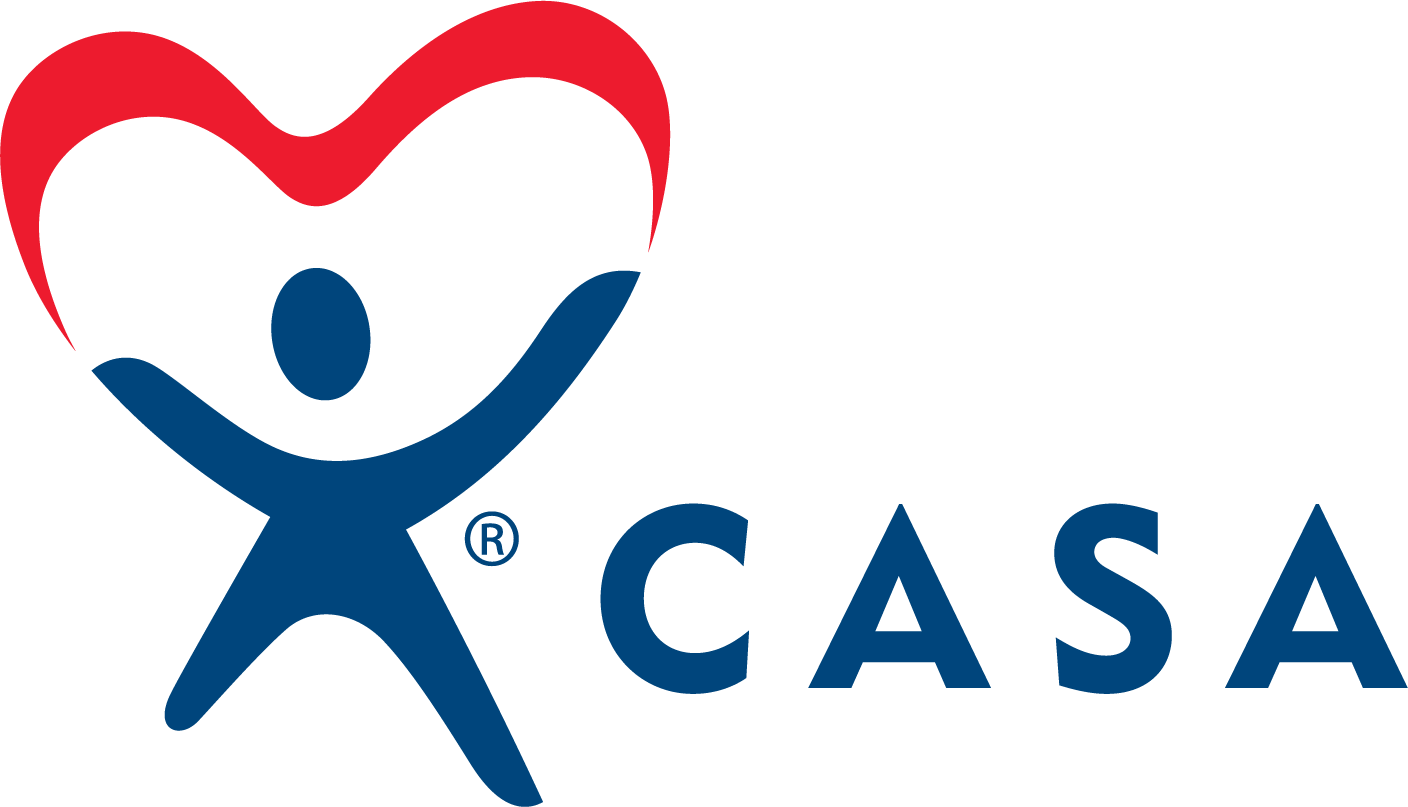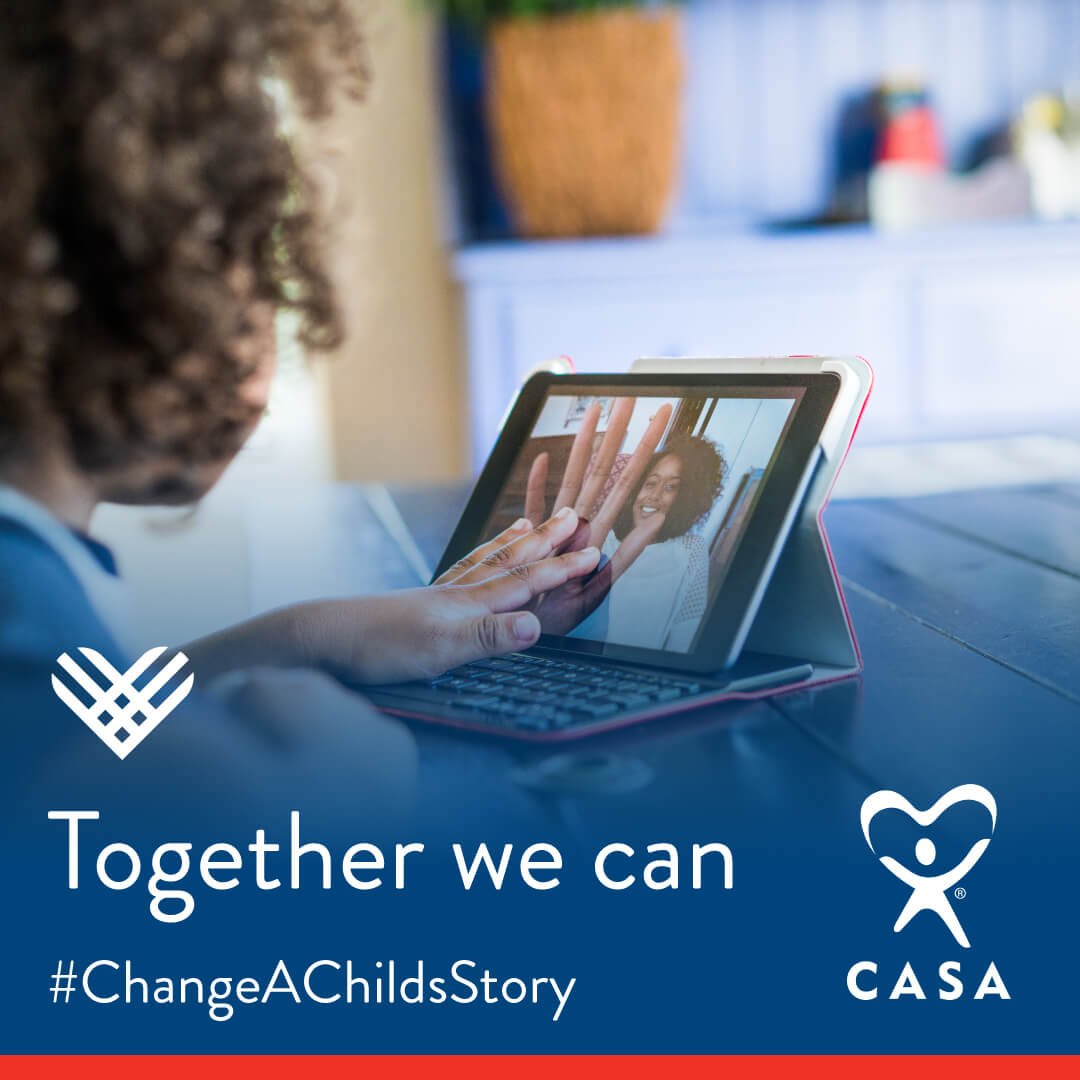Covid Policy
GAL/CASA Volunteer Agreement for Resuming In-Person Visits with Children
The health and safety of our team, as well as the children and families we serve, is extremely important to all of us at CASA of Jefferson County.
The health and safety of our volunteers is of the utmost importance to our program.
If you are at high risk for COVID-19 or cannot resume face-to face visits for other reasons, you should continue with virtual visits. All child contact, whether in-person or virtual, must be recorded in Optima. At this time, it is important to document in-person visits in Optima on the same day in case someone involved in the visit later becomes sick or tests positive for COVID-19.
GAL/CASA programs cannot assume liability for health risks. Volunteers must make personal decisions regarding the risks involved in having in-person contact. The child’s caregivers/placement, GAL/CASA volunteer, and the volunteer supervisor should all agree before in-person visits may resume, and the following conditions must be followed:
All volunteers should self-monitor for signs and symptoms of COVID-19 to prevent the spread of the virus.
Volunteer should conduct a self-health screening before scheduling visits and immediately before conducting in-person visits.
Immediately before a visit, the program and/or the volunteer must follow the pre-screening protocol outlined above.
Volunteers cannot conduct any in-person visits if:
If the volunteer has traveled outside of Indiana, particularly to any high-risk areas of the country or internationally. (You must notify your CASA supervisor before scheduling visits within 14 days of your travel to determine whether you should wait.)
If the volunteer has any of the symptoms associated with COVID-19 or has been exposed to a person with a confirmed or suspected case of COVID-19, the in-person contact must be rescheduled to a virtual visit.
All in-person visits should be scheduled with the caregiver ahead of time.
No unannounced visits should take place at this time. Immediately before the visit, the volunteer should:
Call to confirm that everyone in the home continues to be free from symptoms associated with COVID-19 by asking the above noted screening questions.
Discuss the use of masks with the caregiver before the visit.
In-person visits must be postponed if any person in the child’s placement has any of the symptoms of COVID-19 or has been exposed to a person with a confirmed or suspected case of COVID-19.
If an adult caregiver in the home is at higher risk for severe illness from COVID-19 and has safety concerns regarding the visit, engage them in a conversation about how to create safe visit arrangements and develop a plan to optimally protect the health and safety of all parties such as the use of social distancing practices, use of masks, conducting visits outside, and other precautionary measures.
If the caregiver has concerns or requests special conditions, the volunteer should make every effort to respect his or her preferences.
During an in-person visit, the volunteer and any participating GAL/CASA staff must observe the following recommended CDC social distancing guidelines:
Avoid close contact!
Some people without symptoms may be able to spread virus.
Stay at least 6 feet (about 2 arm’s length) from others.
Do not gather in groups and avoid crowded places. Visit with the caregivers and child outdoors, in an open-air environment, when possible.
Do not bring unnecessary items into the home and avoid placing belongings on any surface in the home.
Do not share pens or other objects.
Use a barrier, such as a paper towel, to open doors.
Do not use the restroom while at visit when possible.
Clean surfaces in your car before and after making visits.
Cover mouth and nose with a cloth face mask when around others.
COVID-19 can be spread to others even if one does not feel sick.
The cloth face mask is meant to protect others in case the wearer is infected.
Continue to keep 6 feet between individuals. The cloth face mask is not a substitute for social distancing.
Wash hands often.
Wash hands with soap and water for at least 20 seconds before and after visit.
If soap and water are not readily available, use a hand sanitizer that contains at least 70% alcohol immediately before and after visit.
Avoid touching your eyes, nose and mouth with unwashed hands; if necessary, wear something on your wrist or mark your hand in some way to remind yourself not to touch your face.
If you become symptomatic or test positive for COVID-19 and you have conducted an in-person visit in the last 14 days, notify your supervisor or the program director immediately.
Note, consult the CDC’s symptom list for the most recent updates:
https://www.cdc.gov/coronavirus/2019-ncov/symptoms-testing/symptoms.html
*Keep in mind that young children may not understand social distancing and may be inclined to ask for hugs, etc. You may need to have a virtual conversation with your children first, to explain this protocol, depending on the age of your children and with whom they are placed.
For further CDC guidance on social distancing, see:
https://www.cdc.gov/coronavirus/2019-ncov/prevent-getting-sick/social-distancing.html


